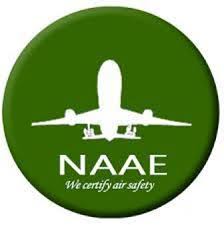The Nigerian air navigation sector faces significant challenges, primarily related to aging equipment, inadequate tools, and subpar working conditions for engineers and technical personnel. Seizling Miri, President of the National Association of Air Traffic Engineers (NAAE), has consistently voiced concerns about these issues, highlighting their detrimental impact on the sector’s performance. He has previously emphasized the lack of critical test equipment and modern tools, hampering engineers’ ability to effectively maintain and repair navigational systems. Poor working conditions, including inadequate transportation to sites and decaying operational vehicles, further compound the challenges faced by aviation workers. Despite these long-standing issues, Miri acknowledges the recent efforts of Engr. Umar Farouk, Managing Director of the Nigeria Airspace Management Agency (NAMA), to address these concerns. However, he stresses the need for substantial government support and funding to facilitate a complete turnaround of the sector.
Miri recounts a specific incident at Owerri airport where a vital navigational aid, the Distance Measuring Equipment (DME), had been out of service for an extended period due to a simple cable fault. He was able to swiftly resolve the issue with the appropriate testing device, emphasizing the critical role of proper equipment in maintaining operational efficiency. The pilot’s elated response of “Hallelujah! DME in Owerri?” underscores the significant impact of this seemingly minor repair, highlighting the broader implications of equipment deficiencies on air navigation. This anecdote serves as a powerful illustration of how the lack of essential tools can cripple critical systems and disrupt air travel, underscoring the urgent need for investment in modern equipment.
The NAAE President’s call for government support stems from his recognition that NAMA’s managing director, while committed to improving the situation, requires significant financial backing to fully address the deep-rooted challenges. Miri acknowledges Farouk’s efforts in terms of increased training opportunities and equipment procurement, but emphasizes that these measures, while positive, are insufficient to overcome the years of neglect. The backlog of issues, accumulated over five to six years, necessitates a comprehensive approach that involves substantial government intervention. Miri’s appeal focuses on securing the necessary funding to acquire essential operational vehicles, a key requirement for engineers to effectively perform their duties across various sites.
Miri’s plea for government intervention underscores the interconnectedness between adequate funding, operational efficiency, and aviation safety. The lack of reliable transportation for engineers hampers their ability to promptly address technical issues at different locations, potentially leading to delays and safety risks. Providing the necessary resources, including functional vehicles, is not merely a matter of improving working conditions; it is a crucial step towards ensuring the smooth operation of the air navigation system and upholding safety standards within the aviation sector. The government’s support is crucial for empowering NAMA to effectively manage and maintain the country’s airspace infrastructure.
The long-standing nature of these challenges signifies a systemic issue within the Nigerian air navigation sector. Miri’s emphasis on the need for government support highlights the responsibility of authorities to provide the necessary resources for the sector’s effective functioning. Investing in modern equipment, improving working conditions, and providing adequate training are not just beneficial for engineers and technical personnel, but are crucial for ensuring the safety and efficiency of air travel in Nigeria. The government’s role in addressing these challenges is not merely financial; it is a strategic imperative to ensure the long-term viability and safety of the nation’s airspace.
Ultimately, Miri’s appeal serves as a call to action for the Nigerian government to prioritize the air navigation sector and invest in its long-term sustainability. By providing the necessary funding and support to NAMA, the government can empower the agency to effectively address the existing challenges, modernize its infrastructure, and ensure the continued safety and efficiency of Nigeria’s airspace. This investment represents a commitment not only to the aviation sector but also to the broader economic development of the nation, as a robust and reliable air navigation system is essential for facilitating trade, tourism, and overall connectivity. The time for action is now, as continued neglect will only exacerbate existing problems and further jeopardize the safety and efficiency of air travel in Nigeria.














